Unlocking Potential: The Role of Skill Development Training Institutes
The Importance of Skill Development in Today’s Job Market
In recent years, the rapid advancement of technology and the constant evolution of economic landscapes have profoundly transformed the job market. Traditional educational paths, once deemed sufficient, are increasingly perceived as inadequate to meet the dynamic and specialized requirements of modern industries. As a result, there is a growing emphasis on skill development to bridge the gap between academic knowledge and practical expertise.
Technological innovations, such as artificial intelligence, machine learning, and data analytics, have revolutionized various sectors, from healthcare to finance. These advancements necessitate a workforce proficient in new, highly specialized skills. Consequently, skill development has become paramount for individuals seeking to enhance their employability and for organizations striving to maintain a competitive edge.
For individuals, skill development offers numerous benefits. Acquiring new skills can significantly boost employability, making job seekers more attractive to potential employers. Moreover, it facilitates career progression by enabling employees to take on more complex and higher-paying roles within their organizations. For instance, a professional who learns data science can transition from a generalist position to a specialized role, thereby increasing their value in the job market.
Employers also stand to gain considerably from investing in skill development programs for their workforce. Organizations that prioritize continuous learning and upskilling are better equipped to adapt to industry changes and technological advancements. This adaptability translates into enhanced organizational competitiveness and sustained economic growth. Companies with highly skilled employees are more likely to innovate, improve productivity, and achieve long-term success.
Real-world statistics underscore the critical role of skill development in today’s job market. According to the World Economic Forum, by 2025, 50% of all employees will need reskilling due to the adoption of new technologies. Additionally, a recent study by LinkedIn revealed that 94% of employees would stay at a company longer if it invested in their career development. These figures highlight the increasing demand for specialized skills and the necessity for both individuals and organizations to prioritize skill development.
In summary, the importance of skill development in today’s job market cannot be overstated. As technology continues to evolve and economic landscapes shift, the need for specialized skills will only intensify. By embracing continuous learning and upskilling, individuals can enhance their career prospects, while organizations can secure their competitive advantage and drive economic growth.
How Skill Development Training Institutes Bridge the Gap
Skill development training institutes play a crucial role in addressing the disconnect between traditional educational frameworks and the evolving demands of the job market. These institutes offer a wide range of programs designed to equip individuals with both technical and soft skills. Technical skills training often includes areas such as information technology, data analytics, and digital marketing, while soft skills training covers communication, teamwork, and leadership abilities. Additionally, many institutes provide industry-specific training tailored to sectors such as healthcare, finance, and manufacturing, ensuring that learners are well-prepared for their chosen fields.
One of the key strengths of skill development training institutes is their flexible learning options. Recognizing that individuals have varied learning preferences and schedules, these institutes offer a variety of formats including online courses, in-person workshops, and hybrid models. Online courses provide the convenience of learning from anywhere at any time, making it accessible for working professionals and those with other commitments. In-person workshops offer hands-on experience and direct interaction with instructors and peers, fostering a collaborative learning environment. Hybrid models combine the best of both worlds, allowing learners to balance online and face-to-face sessions effectively.
Another significant advantage of skill development training institutes is their personalized approach to education. Unlike traditional educational systems that often follow a one-size-fits-all model, these institutes focus on individual learning needs. They offer hands-on training through practical exercises and real-world projects, providing learners with the opportunity to apply their knowledge in practical scenarios. Mentorship programs are also a common feature, where experienced professionals guide learners through their career development, offering valuable insights and advice.
The impact of skill development training institutes is evident in numerous success stories. Individuals who have completed these programs often report significant career growth, transitioning into higher-paying roles or entirely new fields. Businesses also benefit from collaborating with these institutes, as employees who undergo training bring enhanced skills and efficiency to their organizations. These success stories underscore the critical role that skill development training institutes play in fostering both individual and organizational growth.



